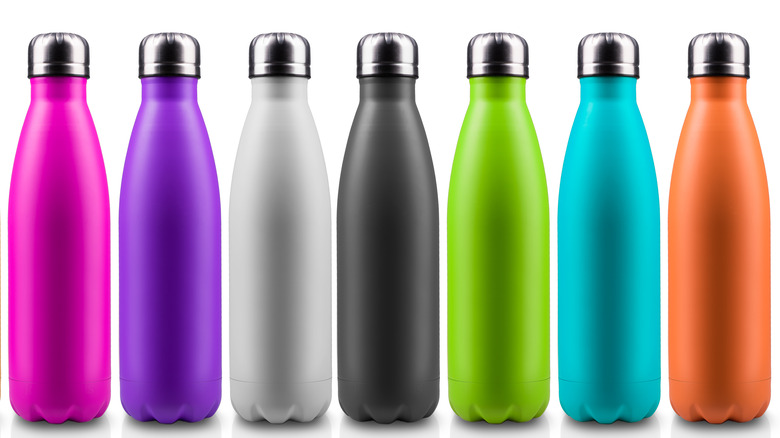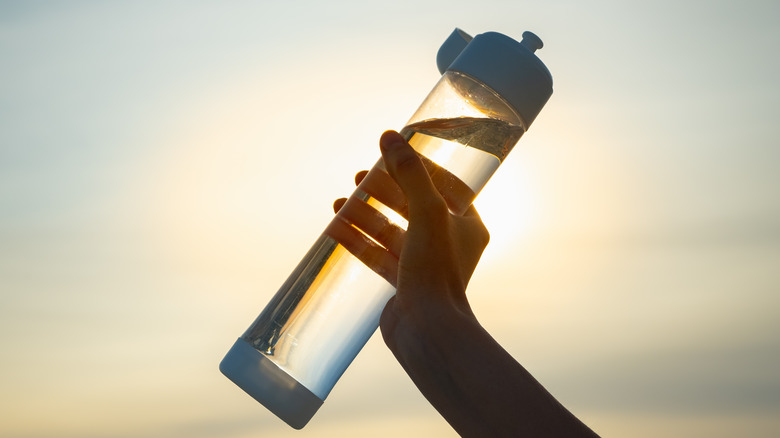Throw Your Reusable Water Bottle Away Immediately If You Notice This
If you're committed to staying hydrated and using less plastic, chances are you've got a reusable water bottle close at hand. According to notlost.com, in a three year period, one reusable bottle could prevent over 1,000 plastic bottles from ending up as ocean waste.
Besides helping the environment, reusable bottles come in all kinds of stylish options and different materials. Some even have a celebrity following. Of course, not all bottles are created equal. Plastic reusable bottles offer a cost-effective, break-resistant option. However, there is the concern that any plastic (even BPA-free) can impact your health.
If you want to avoid plastic altogether, glass options are easy to clean and won't pick up any odors if you want to put a non-water drink in the bottle (per Food and Wine). Stainless steel bottles are a hard-working choice that will keep going, even with a minor dent or two. These bottles are also more resistant to mold and bacteria (per Kool).
No matter which kind of reusable bottle you choose, regardless of price, these bottles are not meant to be used indefinitely. Sort through your collection and see if there are any tell-tale signs that mean it's time to for an upgrade.
Time to move on
Bottle lifespans depend on their material and how hard they have been used, especially if they are dropped frequently.
Glass water bottles last several years with proper care and cleaning(per Sustainability Nook). Obviously, a broken glass bottle sends a clear signal that it needs to be replaced.
Plastic bottles last about one year, according to Leanne Stapf, chief operating officer at The Cleaning Authority (per PopSugar). Stapf mentioned that the plastic starts to break down with time and use. According to DelightJar, if a plastic bottle is misshaped from being frozen or heated, it's time to say good-bye. Deep scratches or cracks in the bottle also mean game over. Those cracks can harbor hidden dangers. Cedrina Calder, MD told PopSugar that a crack in the plastic "increases the chances that bacteria can collect within the cracks and grow." Dr. Calder also suggests inspecting parts of the bottle that come in direct contact with your mouth. Any buildup that resists cleaning equals time for a new bottle.
According to bottle-manufacturer Kool, a stainless steel bottle lasts 12 years on average. If the bottle is rusting (due to not being premium-grade stainless steel), then you should get rid of it, per DelightJar.
Recycling your bottle may be as simple as placing it in a bin for curbside collection. However, if it is stainless steel, you'll need to seek out a scrap-metal yard. If you have multiple steel bottles, consider upcycling and create a ring-toss game (per Recyclebank).

